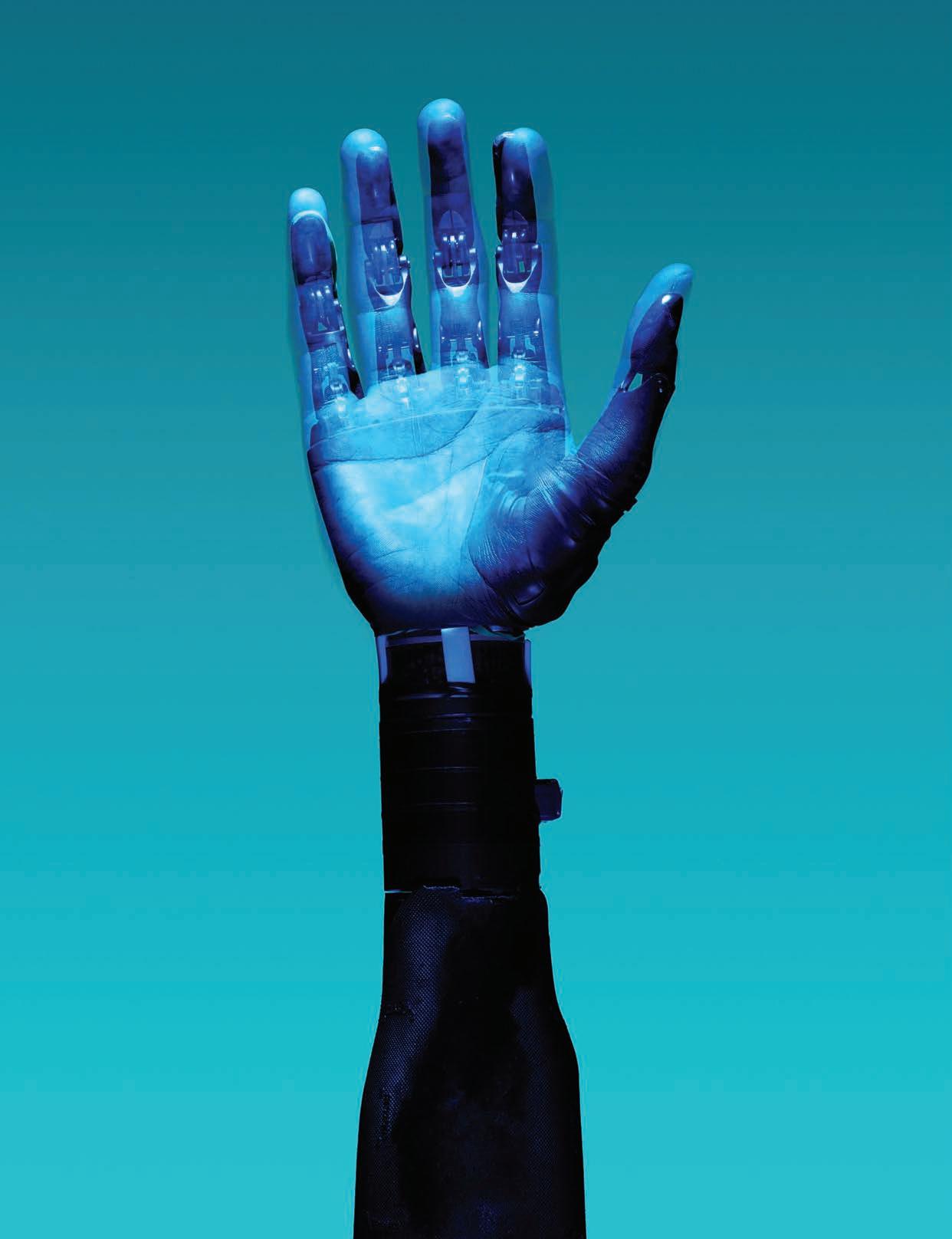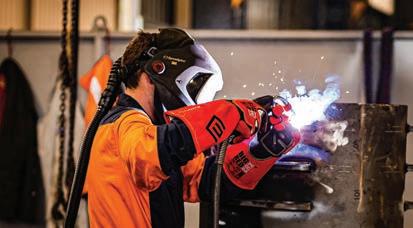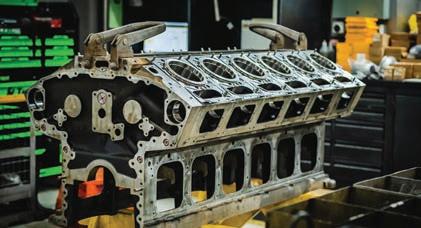
3 minute read
YOUR JOB IN THE AI BOOM
In a world where artificial intelligence (AI) is becoming increasingly prevalent, it’s natural to feel a little uneasy about the future of our careers. But fear not! With the right approach and mindset, you can adapt to the AI revolution and ensure your career remains relevant and thriving.
Words: LJ Charleston
Advertisement
With machines performing tasks at unprecedented speeds and with unparalleled accuracy, it seems like the days of human labour may be numbered. However, let’s explore strategies to keep your job from becoming an AI casualty, and how to stay ahead of the game and thrive in an AI-dominated world.
Embrace Creativity
Creativity is always going to be a vital skill. The unique cognitive processes that drive human creativity remain beyond the reach of robots, making it an essential tool for anyone determined to maintain their job security. By focusing on creative pursuits, you’ll be in a better position to ensure you’re indispensable and irreplaceable.
According to McKinsey & Company’s ‘State of AI in 2022’ survey, business adoption of AI has more than doubled since 2017. More than 20 per cent of respondents in 2017 claimed they adopted AI in at least one business area, but now it stands at 50 per cent.
The good news is that the survey found jobs requiring creativity are less susceptible to automation, with only 4 per cent of roles with a high degree of creativity seen as being at risk of automation.

Harnessing Human Emotion
Machines might excel at crunching numbers and analysing data, but they still struggle to understand human emotions and nuances. Fostering empathy, active listening and effective communication will help you maintain a strong human connection in the workplace, which can be invaluable in a wide range of industries, especially when you’re frequently dealing with clients.
Emotional intelligence (EI) – the ability to recognise, understand and manage our own emotions and those of others – is an indispensable skill that AI cannot mimic. By harnessing EI, you’ll be able to build strong connections and navigate complex social situations.
It goes without saying: human emotion plays a significant role in decision-making, relationship building and communication.
ETHICAL DECISION-MAKING
As AI’s role in our lives grows, so does the importance of ethical considerations. Human judgement is essential for assessing the potential consequences of AI-driven decisions, such as their impact on privacy, fairness and societal values.
By cultivating a strong ethical compass and understanding the implications of technology on society, you can play a crucial role in shaping responsible AI adoption and navigating complex ethical dilemmas.
A Capgemini Research Institute study found that organisations with high EI levels outperform their counterparts in various key performance indicators.
According to the study, “this includes customer satisfaction, employee engagement and revenue growth.”
CRITICAL THINKING AND COMPLEX PROBLEM-SOLVING
For all its advantages, AI lacks the capacity for nuanced understanding and context-sensitive judgement. Critical thinking is quite human as it involves the ability to analyse and evaluate information objectively to make informed decisions, while complex problem-solving requires identifying and addressing underlying issues.
So, if you’re able to fully develop these skills, you’ll be better placed to tackle intricate problems in areas such as strategy, operations and management, where human intuition and judgement are so important.
Collaboration And Teamwork
AI-driven tools can streamline many processes, but human collaboration remains a crucial factor in generating diverse ideas, fostering innovation and driving organisational success. As work becomes increasingly interdisciplinary, strong teamwork and collaboration skills will be crucial. Focus on effective communication, active listening and conflict resolution to excel in teambased environments and you’ll be seen as a valuable team player.
THIS PAGE: EMBRACING LIFELONG LEARNING IS A SURE-FIRE WAY TO THRIVE IN AN AIDRIVEN FUTURE.

If you embrace lifelong learning, foster human-centric skills and adapt to the changing landscape, you can not only safeguard your career but you’ll be able to thrive in the AI-driven future.
Develop A Multifaceted Skill Set
Set yourself a goal of developing expertise in multiple disciplines, as this can make you an invaluable asset. By combining knowledge from various fields, you can approach problems and projects with a unique perspective that AI systems – which often specialise in a single domain –cannot replicate.
Interdisciplinary expertise allows you to contribute more holistically to your business, making you a vital resource in roles that require broad knowledge and diverse skill sets.
Cultivate A Strong Professional Network
Another thing AI isn’t able to do is build a robust professional network. A strong network is invaluable because it can give you great access to new opportunities, resources and insights that can help you stay ahead in your industry.
If you’re actively participating in networking events, conferences and online forums, you’ll be in a position where you can develop relationships with peers, mentors and thoughtleaders – all of whom can support your career growth and open doors to new possibilities. Networking also leads to opportunities for collaboration which, once again, highlights the unique importance of human connections: something that’s truly worth its weight in gold.














